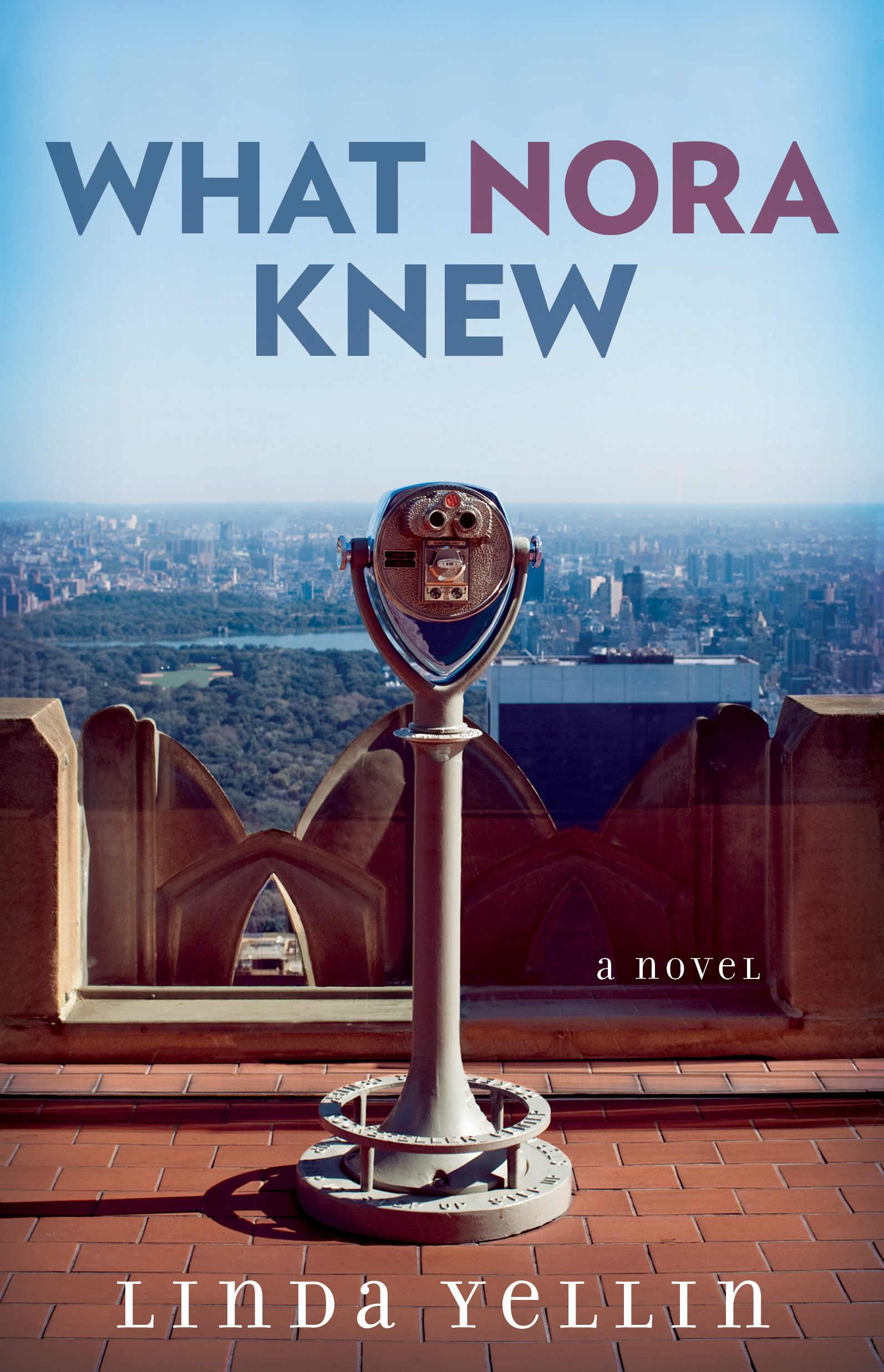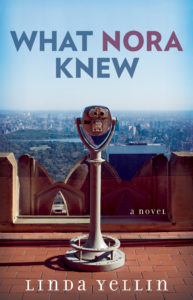
What DID Nora know?
 Linda Yellin is a funny lady. To wit, her new novel, What Nora Knew,” is crammed with snappy one-liners, snarky apercus and a whole lot of good-humored sass. Whether intentionally or not, Yellin has joined ranks with Ephron in turning out a particular kind of humor, one that is specific—if not unique to—Jewish women. She talks to Lilith Fiction Editor Yona Zeldis McDonough about concealed vibrators, the enduring appeal of rom-coms and the nuances that separate the funny girls from the boys:
Linda Yellin is a funny lady. To wit, her new novel, What Nora Knew,” is crammed with snappy one-liners, snarky apercus and a whole lot of good-humored sass. Whether intentionally or not, Yellin has joined ranks with Ephron in turning out a particular kind of humor, one that is specific—if not unique to—Jewish women. She talks to Lilith Fiction Editor Yona Zeldis McDonough about concealed vibrators, the enduring appeal of rom-coms and the nuances that separate the funny girls from the boys:
Yona Zeldis McDonough: You have a background in advertising; how did you transition to writing fiction?
Linda Yellin: I’m sure there are people who’d say advertising is fiction, but that theory aside, my first novel was ninety percent true. So it was only sorta-fiction. I changed all the main players’ names to keep my relatives from getting mad at me. I didn’t want to get un-invited to the family seders.
The next book, The Last Blind Date, was a memoir, so that was technically non-fiction. But I guess none of my cousins got offended because they’re still speaking to me. What Nora Knew is a novel, although Nora Ephron and her movies and insights are real, so I guess I’m still transitioning into writing fiction.
YZM: Your protagonist, journalist Molly Hallberg, has had some pretty entertaining assignments: learning to dance like a Rockette and sneaking vibrators through security scanners. Any of these drawn from real life experiences?
LY: Absolutely. Molly and I have a lot in common. Most of her assignments are ones I’ve done for MORE magazine. Including one where she spends a day wearing kegel underpants. (One-inch silicone plug in the crotch…you can figure out the rest.)
The vibrators was my favorite assignment. There were three of them – all “disguised” like cosmetics: a lipstick; a mascara; and a blusher brush. I stood in line at the Family Court building in New York thinking: it’ll be really great for the story if I get busted for doing this. (Security guard: “Would the owner of the vibrating mascara please step out of line?”) But all along I was praying that I’d pass through. When it got down to story-versus-mortification, I was more afraid of mortification. Molly Hallberg’s braver than me.
YZM: What Nora Knew is an homage not only to Nora Ephron but to the whole Hollywood tradition of romantic movies. Can you say more about that?
LY: There are certain constructs and expectations in romantic movies. We probably know from the get-go who the heroine will end up with, but if you care about the characters, you want to travel along with them and root for their success. Whether it’s Meg Ryan and Tom Hanks, or Meg Ryan and Billy Crystal, or Jennifer Lawrence and Bradley Cooper – romantic comedies are journeys with happy endings, and who doesn’t love that? And who doesn’t love Nora Ephron’s romantic comedies?
YZM: Do you consider Ephron a quintessentially Jewish humorist and if so, why?
LY: Her humor is quintessentially relatable, so it also covers Christianity, Buddhism, Atheism; you name it. But there is a wry, sardonic point-of-view in all of Nora Ephron’s writing that certainly feels Jewish. An oy-vey-can-you-believe-this quality. It’s the same one I grew up with while my aunts and uncles and cousins were debating life over corned beef and smoked fish.
YZM: How would you describe the differences between male and female humorists?
LY: Subject matter. Our humor leans toward relationships and emotion. Guys tend to vamp more on guy-stuff. Sex, sports, things that explode. Don’t hold me to this opinion, though. For sure, there’s a PhD candidate out there whose doctoral thesis would totally disagree.
YZM: What, in the end, did Nora know?
LY: Plenty. That’s why it was so much fun to write this novel.



